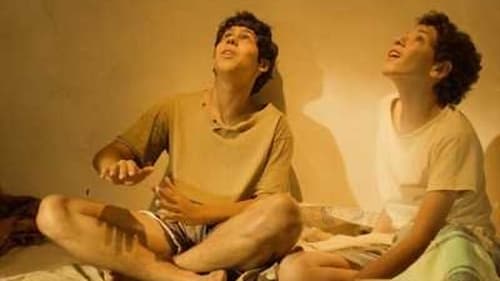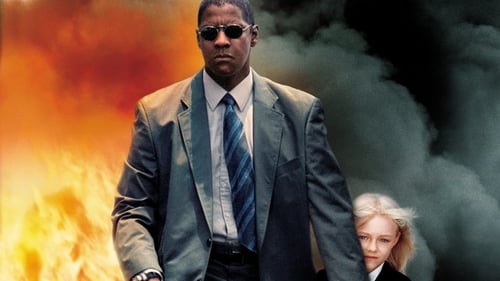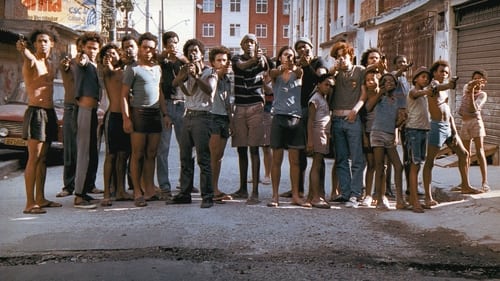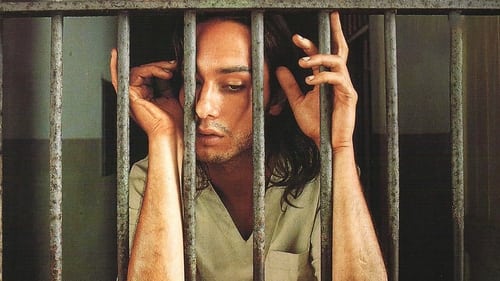
Two friends go their separate ways at age 17, affected by the troubling teenage conflicts in the small and conservative city of Coti das Fuças, in the countryside of Brazil. Levi, a poet, tired of being mistreated, sticks to the friends’ plan of moving to a big city. Elias, opressed by a violent father, gives up on the idea of leaving. At age 50, Levi comes back to reunite with his friend during a funeral, when their memories are relived before the last goodbye. Inspired by the theater play Aldeotas, by Gero Camilo.

Writer
Two friends go their separate ways at age 17, affected by the troubling teenage conflicts in the small and conservative city of Coti das Fuças, in the countryside of Brazil. Levi, a poet, tired of being mistreated, sticks to the friends’ plan of moving to a big city. Elias, opressed by a violent father, gives up on the idea of leaving. At age 50, Levi comes back to reunite with his friend during a funeral, when their memories are relived before the last goodbye. Inspired by the theater play Aldeotas, by Gero Camilo.

Director
Two friends go their separate ways at age 17, affected by the troubling teenage conflicts in the small and conservative city of Coti das Fuças, in the countryside of Brazil. Levi, a poet, tired of being mistreated, sticks to the friends’ plan of moving to a big city. Elias, opressed by a violent father, gives up on the idea of leaving. At age 50, Levi comes back to reunite with his friend during a funeral, when their memories are relived before the last goodbye. Inspired by the theater play Aldeotas, by Gero Camilo.

Joselino

Antonio
After another day at work, Virgílio turns on the answering machine at home and hears a disturbing message. It's a message from Clara, communicating the end of their relationship. Virgílio then listens to the message repeatedly, seeking some meaning. Breaking up is not the problem; the problem is that Virgílio has no idea who Clara is.

Mato Grosso
The film is based on lyrics from the very famous Brazilian samba composer Adoniran Barbosa, following the aesthetics of his time. Notable facts and characters of his songs takes us through the story, a portrait of São Paulo city in the 50's, a place full of music, love stories and gentrification (poor people getting evicted from their places in order to build great buildings), subjects often explored in Adoniran's work, always with a good touch of humor. This way he became the 'poor people poet'.

THE DIONTI FAMILY is a lyrical family drama, infused with magic realism, about a father and the two sons he is bringing up alone. It depicts a striking part of the Brazilian countryside, rarely seen in cinema and tells a universally engaging tale about first love, loss and personal transformation.

In the ghettos of the greatest metropolis in Brazil, a midst flying bullets, love and any number of hurdles, young people's stories mingle and collide in the search for dreams and choices. Inspired by true stories, the feature film 'Broken Town' reveals the struggle faced and the choices made by teenagers who have always been surrounded by weapons, crime, and hardship.

The Gran Circo Teatro Americano takes its attractions to the northeastern hinterland. In the city of Aracati, the troupe puts on a fun play about the crisis in hell. With a rochamboesque plot and inspired by string literature, the attraction shows the arrival of the bandit Lamparino to hell and how Lucifer participates in international capitalism. Meanwhile, behind the scenes, loves and tragedies move the lives of artists.

Himself
A look of the 21st century for one of the most important cultural movements in Brazilian history. The production brings a mix of interviews, concerts, artistic interventions and actors in small sketches. An intersection of the social and artistic contexts of 68 with the current one.

A document of one of the greatest cultural events of Latin America in an innovative way, the film mixes documentary and fiction to pay homage to the artists of the contemporary Brazilian theater, who come together in the city of São Paulo every year to celebrate the coming of the spring. The fictional storyline shows the shooting of the documentary which is directed by a foreigner director and his Brazilian second-rate crew. They join forces to make a successful film based on the event.

Viktor Laurence
Set in a small town in Pará in the heart of the Amazon, Cauby makes a living as a photographer. Soon he’ll befriend pastor Ernani’s attractive wife Lavínia and embark on an affair – a good portion of the film is dedicated to their passionate relationship. We will also learn of Lavínia’s baggage from her past – how she met her husband, her continuing love for him, and his supportive role. But when rumours of her affair with Cauby circulate, the conservative community do not look at it kindly, leading to tragedy, and their lives will never be the same afterwards…

Tatu
"The Baron" wanted to commit the perfect heist involving 3 tons of money and no violence. For this he would need the right people willing to get 1 million dollars to take part in this job. Based on true events, in 2005, 168,000,000 Brazilian Real (almost 80,000,000 US dollars) were stolen from a Brazilian Central Bank (Federal Reserve), making it the biggest peace-time robbery in history. It was perhaps the most audacious bank heist ever.

Trapped inside an apartment in Sao Paulo, an actor and a director of videos explore mutual love. Adapted from Benjamin Schianberg character, in this book Marcal Aquino, "I receive the worst news of your beautiful lips."

A road movie that follows a solitary man as he sets of on a journey to the south of Brazil. The strange characters and absurd situations he encounters along the way present an extraordinary portrait of human relations.

Zé Burraldo
On the porch of a farm, a woman tells stories while cutting and sewing scraps of cloth, creating images that form a towel. There are four stories of humor and magic. The fisherman's wedding with Iara, a mermaid from the rivers. The altar boy of a church that sees the procession of souls. The encounter between a Santa Claus in a store and a street boy and the adventures of Zé Burraldo, a naive guy who always lets himself be carried away by others.

Vicente
An obsessive photographer crazy for female feet; a man that projects himself on situations he sees on TV; a simple public officer that receives a proposal from a corrupt Judge; a slaughter in a marriage crisis and a broken heart secretary that dreams to get married. These five characters will have their lives changed from a hot weekend.

Aurelio Sanchez
メキシコシティ。 政府機関のエージェント(ワシントン)は、両親が誘threatの脅迫を受けた少女(ダコタファニング)の保護に関わる仕事を渋々受け入れ、人生にがっかりしています。 彼女が彼の失われた精神を目覚めるまで、彼女の小さな弟子との関係は成長します。 しかし、少女が誘されたとき、彼女の怒りは責任者に対して解き放たれます...「装甲弾丸」(火の男)のバージョン、および1987年にエリー・チョウラキ監督のフランス映画。

Firmino
A small poor community called Javé is under threat of being flooded by a new dam that is being built, and the only way to prevent this is to prove the town's historical value. As most of the inhabitants are illiterate, they have no choice but to ask for the help of Antônio Biá, a man who has been ostracized ever since it was discovered that he had sent out letters with lies about their reputations as a way to keep his job in Javé's seldom-used post office. He now has the task of documenting people's memories of how the city was founded, yet each inhabitant has his or her own version of what happened.

Sem Chance (No Way)
When a doctor decides to carry out an AIDS prevention program inside Latin America’s largest prison: the Casa de Detenção de São Paulo - Carandiru, he discovers the victim of one of the darkest days in Brazilian History when the State of São Paulo’s Military Police, with the excuse for law enforcement, shot to death 111 people. Based on real facts and on the book written by Dráuzio Varella.

Preso
A story inspired by the life of one of the most remarkable figures in Brazilian popular culture, João Francisco dos Santos (1900-1976). In turn, bandit, transvestite, street fighter, brothel cook, convict and father to seven adopted children, dos Santos – better known as Madame Satã – was also a notorious gay performer who pushed social boundaries in a volatile time.

Paraíba - Shorty
1960年代後半、ブラジル・リオデジャネイロの貧民街“シティ・オブ・ゴッド”では銃による強盗や殺人が絶え間なく続いていた。そこでは3人のチンピラ少年が幅を利かせている。ギャングに憧れる幼い少年リトル・ダイスは彼らとともにモーテル襲撃に加わり、そこで初めての人殺しを経験すると、そのまま行方をくらました。一方、3人組の一人を兄に持つ少年ブスカペは事件現場で取材記者を目にしてカメラマンを夢見るようになる。70年代、名をリトル・ゼと改めた少年リトル・ダイスは、“リオ最強のワル”となって街に舞い戻ってきた…。

Reginaldo
Brazilian badlands, April 1910. Tonho is ordered by his father to avenge the death of his older brother. The young man knows that if he commits this crime, his life will be divided in two: the twenty years he has already lived and the few days he has left to live, before the other family avenges their son's death. He is torn between fulfilling his ancestral duty and rebelling against it, urged by his younger brother Pacu. That's when a tiny travelling circus passes through the vast badlands where Tonho's family lives.

Ceará
A trip to the mental institution hell. This odyssey is lived by Neto, a middle class teenager, who lives a normal life until his father sends him to a mental institution after finding drugs on his pocket. The maconha cigarrete is just the final drop that exposes the family tragedy. Send to a mental institution, Neto gets to know a completely absurd, inhumane reality in which the people are devoured by a corrupt and cruel institution system. The documentary type language used by the director give this movie a sensation of realty that increases even more the impact of the emotions Neto goes through. In the mental institution, Neto is forced to mature. The transformations that he goes through change this relations with his father.

Filmed over a five-year period, Chronically Unfeasible dissects Brazilian problems, using six people who meet in a restaurant in São Paulo as models to illustrate political, sociological and economic disparities between Brazil's upper and lower classes.






















